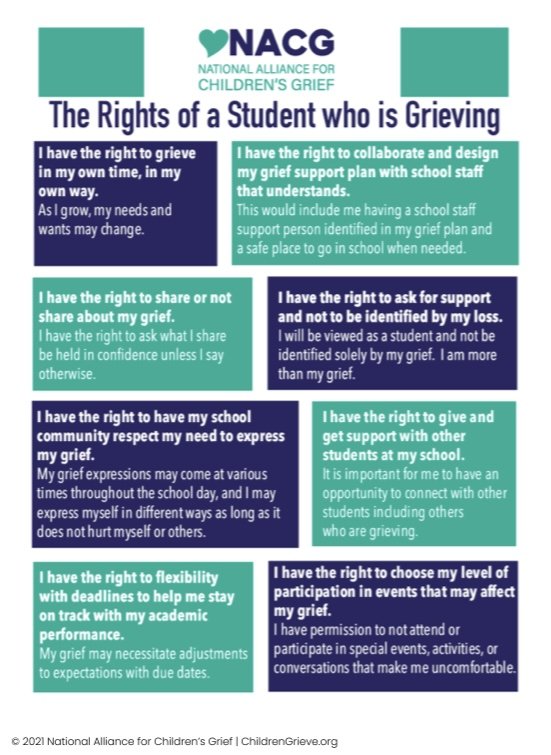Returning to school can be a time of tremendous grief bursts - both expected and unexpected: from completing emergency contact forms after a parent/caregiver has died (is dying) or absent in any capacity; seeing families together when a parent or sibling is in hospital, hospice or is no longer present; witnessing the range of emotions when people talk about summer experiences filled with joy and connection when grief, loss, an accident, illness and absence has been their experience instead… While not readily visible, grief will continue to influence the life of a student impacted by loss (as they live with navigating the ongoing impact of grief & grieving).
Compassion, creativity, patience and empathy are essential in responding in a non-judgmental way to the individual and unique needs of each student.
You can access the FREE Rights of a Student Who is Grieving via NACG















